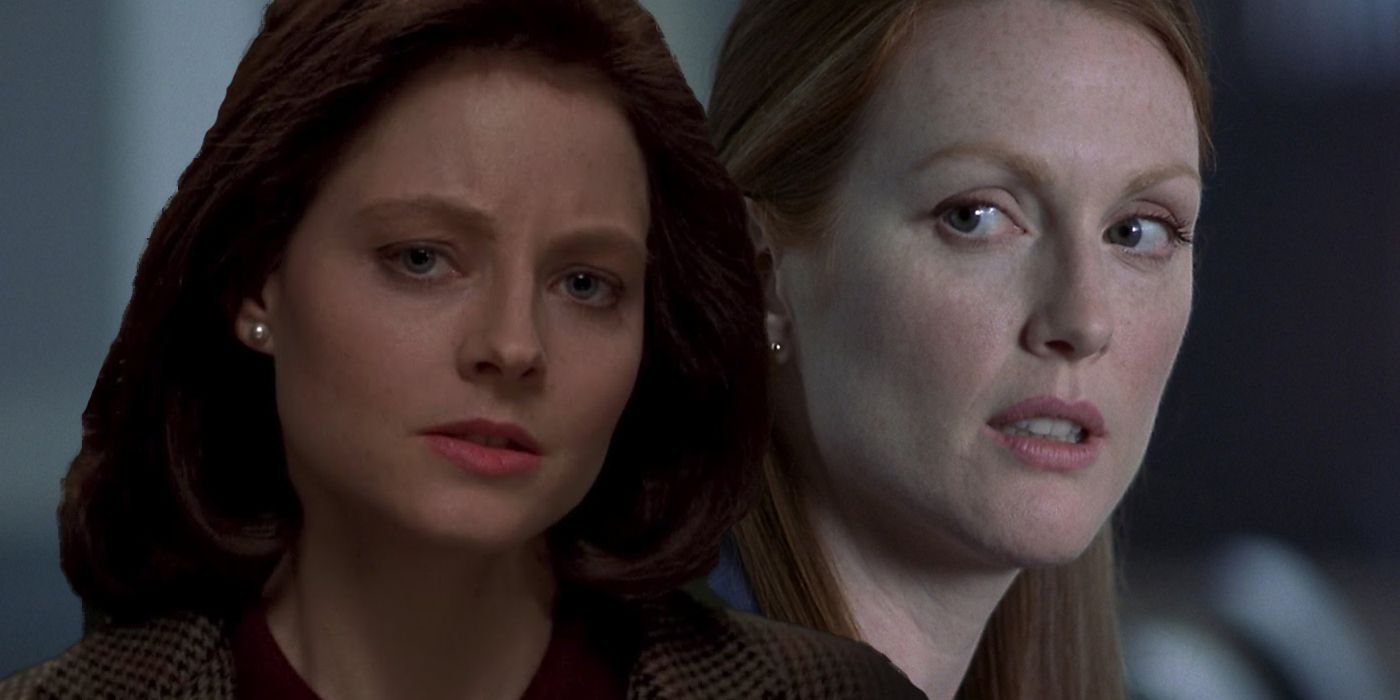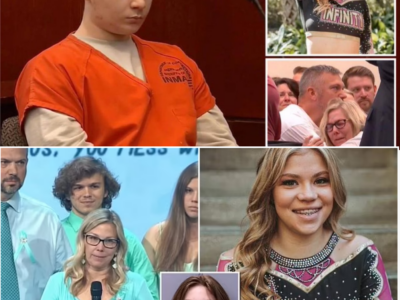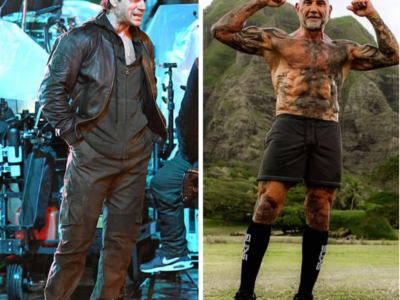Few characters in cinematic history have captured the imagination of audiences quite like Clarice Starling, the tenacious FBI agent created by Thomas Harris in his novels The Silence of the Lambs (1988) and Hannibal (1999). Brought to life on screen in two iconic films, Clarice has been portrayed by two powerhouse actresses: Jodie Foster in The Silence of the Lambs (1991) and Julianne Moore in Hannibal (2001). The debate over who embodied Clarice Starling more authentically has raged for over two decades, with fans and critics divided on whether Foster’s raw intensity or Moore’s more seasoned take better captured the essence of this complex heroine. This article delves into the performances of both actresses, exploring their approaches to the character, the contexts of their portrayals, and the lasting impact of their interpretations on Clarice Starling’s legacy.
Clarice Starling: A Character Overview
Clarice Starling is a character defined by her resilience, intelligence, and moral fortitude. As a young FBI trainee in The Silence of the Lambs, she is thrust into a harrowing investigation to catch the serial killer Buffalo Bill, relying on the cryptic guidance of the incarcerated Dr. Hannibal Lecter. Her background—growing up in a small West Virginia town, losing her father at a young age, and navigating a traumatic childhood—shapes her determination to save others, a trait that makes her both vulnerable and heroic. By the time of Hannibal, Clarice is a seasoned agent, grappling with the fallout of a botched drug raid and the reemergence of Lecter, now a fugitive. The character’s evolution across the two stories offers a rich canvas for any actress, but it also presents unique challenges in maintaining consistency and depth.
Jodie Foster as Clarice Starling: The Iconic Original
Jodie Foster’s portrayal of Clarice Starling in The Silence of the Lambs is widely regarded as one of the greatest performances in film history. At 28 years old during filming, Foster brought a raw, earnest intensity to the role, capturing Clarice’s blend of inexperience and unyielding resolve. Her Clarice is a young woman still finding her footing in the male-dominated world of the FBI, yet she holds her own against the chilling intellect of Lecter, played by Anthony Hopkins. Foster’s ability to convey Clarice’s inner turmoil—her fear of failure, her haunted memories of her father’s death, and her determination to save Buffalo Bill’s next victim—earned her the Academy Award for Best Actress in 1992.
Foster’s performance is marked by subtle physicality and emotional depth. Her West Virginia accent, carefully honed, grounds Clarice in her working-class roots, while her wide-eyed expressions reveal the character’s vulnerability. In scenes with Lecter, Foster strikes a delicate balance, showing Clarice’s awe and fear of the cannibalistic psychiatrist while never letting her guard down completely. The American Film Institute has ranked Foster’s Clarice as the greatest heroine in film history, a testament to the indelible mark she left on the character. Rolling Stone and Entertainment Weekly have also lauded her as one of the greatest movie protagonists, citing her authenticity and strength.
One of the most memorable aspects of Foster’s portrayal is her chemistry with Hopkins. Their scenes together crackle with tension, as Clarice navigates Lecter’s psychological games while seeking clues to catch Buffalo Bill. Foster’s Clarice is not just a foil to Lecter but a fully realized character in her own right, driven by a deep sense of justice and empathy. Her final confrontation with Buffalo Bill in a darkened basement, where she relies on her instincts to survive, is a masterclass in suspense, with Foster’s performance anchoring the film’s climax.
Why Foster Didn’t Return for Hannibal
Despite the critical and commercial success of The Silence of the Lambs, which won five Academy Awards, including Best Picture, Foster chose not to reprise her role in the sequel, Hannibal. The reasons for her departure are multifaceted. Officially, Foster cited scheduling conflicts, as she was working on her directorial project Flora Plum, a film that ultimately never came to fruition due to production issues. However, in interviews, Foster has hinted at deeper reservations about the script and the direction of Clarice’s character in Hannibal. The novel, released in 1999, ends with Clarice and Lecter becoming lovers, a plot point that many fans—and reportedly Foster herself—found to be a betrayal of Clarice’s established moral compass.
In a 2005 interview with Total Film, Foster stated, “The official reason I didn’t do Hannibal is I was doing another movie, Flora Plum. But Clarice meant so much to Jonathan [Demme, the director of The Silence of the Lambs] and I, she really did, and I know it sounds kind of strange to say but there was no way that either of us could really trample on her.” Foster’s comments suggest a protective stance toward the character, indicating her discomfort with the narrative choices in Hannibal. The film’s director, Jonathan Demme, and screenwriter, Ted Tally, also declined to return for similar reasons, with Demme reportedly finding the story too lurid compared to the psychological nuance of the original.

Julianne Moore as Clarice Starling: A Different Take
With Foster’s departure, the role of Clarice Starling in Hannibal went to Julianne Moore, a highly respected actress known for her versatility and emotional depth. Directed by Ridley Scott, Hannibal picks up ten years after the events of The Silence of the Lambs, with Clarice now a seasoned FBI agent facing corruption within the Bureau and the reemergence of Lecter, who has been living in Florence. Moore’s Clarice is more jaded, having endured years of bureaucratic resistance and a recent professional setback following a failed drug raid. The film also introduces Mason Verger, a surviving victim of Lecter’s, who seeks to use Clarice as bait to capture the fugitive.
Moore faced an uphill battle from the start, stepping into a role so closely associated with Foster’s Oscar-winning performance. In a 2024 interview with Vanity Fair, Moore acknowledged the pressure, saying, “Of course I felt pressure! Jodie Foster is absolutely iconic and is one of my favorite performers ever. And I think the most important thing was not to try to be Jodie. There’s no way.” Moore chose to approach Clarice as a distinct character, focusing on her evolution into a more hardened agent while retaining her core qualities of courage and incorruptibility. She worked closely with Scott to ensure her performance stood on its own, and she benefited from the support of Anthony Hopkins, who reprised his role as Lecter and had previously worked with Moore in Surviving Picasso (1996).
Moore’s Clarice is older, more battle-worn, and less emotionally open than Foster’s portrayal. Her performance emphasizes Clarice’s professionalism and resilience, particularly in scenes where she faces harassment from corrupt FBI colleagues like Paul Krendler. However, many fans and critics felt that Moore lacked the same chemistry with Hopkins that Foster had, a crucial element given the central dynamic between Clarice and Lecter. While Moore’s acting was generally praised—she brings a quiet intensity to the role—the film itself received mixed reviews, with some critics lamenting its shift toward more graphic violence and a less nuanced narrative compared to The Silence of the Lambs.
The Debate: Jodie vs. Julianne
The debate over who portrayed Clarice Starling better is deeply subjective, often reflecting fans’ emotional attachment to the original film. Foster’s performance is widely considered iconic, a benchmark for female characters in the thriller genre. Her Clarice is a young woman on the cusp of greatness, her vulnerability and determination making her a relatable and inspiring figure. The chemistry between Foster and Hopkins is often cited as a highlight, with their scenes together creating a palpable tension that drives the narrative. Foster’s Oscar win and the film’s cultural impact further solidify her portrayal as the definitive Clarice for many.
On the other hand, Moore’s performance is often judged unfairly due to the shadow cast by Foster. She faced the daunting task of stepping into a beloved role while navigating a script that many felt betrayed Clarice’s character. The Hannibal film altered the novel’s controversial ending, avoiding the romantic entanglement between Clarice and Lecter, but it still leaned heavily into gore and spectacle, which some felt diminished Clarice’s complexity. Moore’s Clarice is a more seasoned agent, reflecting the passage of time, and her performance captures the character’s resilience in a different phase of life. However, fans on platforms like Digital Spy and Reddit have expressed mixed feelings, with some appreciating Moore’s take but many feeling she couldn’t replicate Foster’s emotional depth or chemistry with Hopkins.
The Legacy of Clarice Starling
Both Foster and Moore have left their mark on Clarice Starling, contributing to the character’s enduring legacy in different ways. Foster’s portrayal set a standard for female heroes in cinema, blending intelligence, bravery, and vulnerability in a way that resonated with audiences and critics alike. Her Clarice is a symbol of perseverance, a woman who overcomes personal and professional obstacles to save lives. Moore, while not as universally celebrated, brought a new dimension to Clarice, showing her as a battle-hardened agent still fighting for justice despite a corrupt system. Her performance, though overshadowed, offers a glimpse into Clarice’s later years, adding depth to the character’s arc.
The debate over “Jodie or Julianne” ultimately underscores the complexity of Clarice Starling as a character. Foster’s interpretation is iconic, a lightning-in-a-bottle moment that defined a generation of thrillers, while Moore’s take, though less revered, provides a continuation of Clarice’s journey that some fans appreciate for its realism. As Clarice continues to be reimagined—most recently by Rebecca Breeds in the CBS series Clarice (2021)—the performances of both Foster and Moore remain touchstones, each offering a unique lens through which to view one of cinema’s greatest heroines.


